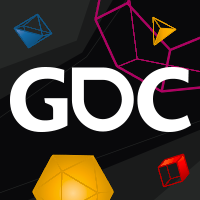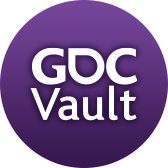Results from the fifth annual Game Developers Conference State of the Industry Survey are in, revealing trends in the games industry based on the feedback of more than 4,500 game developers ahead of GDC 2017 in February and March.
Earlier this month we pointed out how the survey results suggest game developers are feeling optimistic about Nintendo’s upcoming Switch console, and feel unsure about the prospects of mid-cycle console refreshes like the PlayStation 4 Pro and Xbox’s “Project Scorpio.” Also, the survey shows that for the first time ever, mobile game devs favor Android over iOS.
Now we round out our deep dive by digging into some of the interesting and intriguing responses submitted in response to one of the survey's most open-ended questions: "Is there anything else you'd like to say about the game industry?"
Download the 2017 State of the Industry Survey here
The 2017 State of the Industry Survey is the fifth entry in the ongoing series of yearly reports and serves as a snapshot of the games industry and illustrates industry trends ahead of GDC in San Francisco. Organized by the UBM Tech Game Network, GDC 2017 takes place February 27th through March 3rd at the Moscone Convention Center in San Francisco, California.
The Good: Growing diversity, exciting tech, and the comfort of community
Many game makers wrote in to say nice things about how the game industry has become a more diverse, welcoming place over the last few years. "Games have never been so diverse," wrote one. "From content to creator to player, the industry benefits from having such a wide range of experiences."
Others were excited about the pace of technical innovation in games, especially in terms of virtual- and augmented-reality devices. "Having used and owned several VR headsets and systems, as a game developer...I'm very excited to see how VR and AR will revitalize the game industry going forward, both in the short term and long," wrote another respondent.
More than a few wrote in to express gratitude at being part of an industry-wide community, one that coalesces around events like GDC but is strong enough to sustain them in their day-to-day lives.
"The community of the games industry (which GDC so perfectly encapsulates, serves and reflects) remains the most wonderful part about working with and in the industry," wrote one respondent. "As long as that's still strong, the games industry can weather any storm thrown at it. And the community hasn't got weaker with increased size, so I'm positive about the future. Very positive. "
The Bad: Crunch (still) sucks, monetization threatens good game design, diversity still has a long way to go
But of course, the game industry still faces some very real problems, and many respondents wrote at length about what they thought those problems might be in the years ahead.
The practice of expected overtime work (that old devil, "crunch" time) is still alive and well, and a huge problem, according to many respondents.
"Overtime is still really bad in this industry and I believe we all need to take measures to lower it to a bare minimum or eradicate it completely," wrote one. "Crunch sucks!" Wrote another. "I support the voice actors strike. We, as devs, need a union."
Others said the game industry still has a long way to go in terms of diversity, both in who it hires and what it creates.
"I am concerned with the continued lack of understanding of diversity in the AAA world," wrote one respondent. "I think many games and stories mistakes sit in the nook of familiarity and audiences time and time again prove that not only can they handle some change but deep down that is what they crave."
Meanwhile, some respondents said that they're very worried about game design moving away from focusing on "fun" in favor of focusing on "profitable."
"I work in mobile and I despise micro-transactions. Much of the mobile mentality is seeping over to console games and I worry how sustainable that will be," wrote another respondent. "People may keep paying and companies will keep bringing in cash, but the art of creating a fun experience may be lost over the next 10 years. We make decisions all the time that are bad for players, but good for business. We don't ask if something is fun, we ask if it is sticky, if it will retain users, if it will drive revenue and push the numbers. I hope this doesn't happen, but that's the way things are going now."
The Rest: Working in games is a bloodbath, a fun time, and just plain fascinating
And as you might expect when you ask over a thousand game makers to say what they think about the game industry, there were lots more responses from all over the spectrum. Some were excited about the freedom afforded by cheap/free game dev tools, but scared to release games into overcrowded marketplaces; others were enthusiastic about VR/AR game design, but worried that game development is becoming too expensive to sustain itself.
"It's a bloodbath," wrote one respondent. "Studios hiring short term contracts, not paying enough to live, and laying people off. Only the billion dollar companies are surviving, mostly via outsourcing for cheap labor, while smaller companies are putting out garbage for games or closing, unable to compete."
"It's a good time to be in games," wrote another. "Technology (coupled with creativity) is helping to push the bounds of interaction and entertainment, enabling content creators to transcend previous barriers and provide experiences that engage audiences in ever-changing ways. Exciting to see what the future holds!"
"It's a fascinating time to be making video games, with so many small and large developers out there," wrote one respondent. "Very exciting."
The rest of the responses, as well as a more detailed analysis of the survey, can be found in the GDC 2017 State of the Industry Survey whitepaper.
For more information on GDC 2017, visit the show's official website, or subscribe to regular updates via Facebook, Twitter, or RSS.



